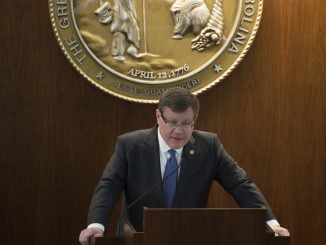In a previous article, I exposed the origins of the oft-repeated but untruthful claim that “97% of the world’s scientists believe that man has caused global warming.” This claim was first put forward in an unscientific 2013 study whose lead author John Cook, an Australian, is a former cartoonist and website developer who subsequently obtained a PhD in the “cognitive science of climate denial.”
Given the falsity of this claimed scientific “consensus,” what in fact do the world’s scientists actually believe about the hypothesis of man-made global warming (Anthropogenic Global Warming in scientific terms, or “AGW” for short)?
To answer this question, in June of 2017 I began to study the AGW position statements of some of the world’s major research universities and academic societies.
In Germany, the Helmholtz Association, the country’s largest scientific organization and a union of 18 research centers, stated that it would “initiate a German network of regional climate offices” to study the subject of AGW, “establish research projects” and “make scientific evidence understandable to the public.” Clearly, the Helmholtz Association had not reached any conclusions but planned to engage in a methodical, scientific study of the subject to develop facts and educate the public on the claims of AGW.
The British Royal Society, the U.K.’s leading association of scientists, stated that “In order to discern the human influences on climate, scientists must consider many natural variations that affect temperature, precipitation, and other aspects of climate from local to global scale, on timescales from days to decades and longer.” Like the Helmholtz Association, the Royal Society’s statement indicated no conclusion had been reached.
England’s Oxford University stated that the decision to try to limit global warming “is currently poorly served by the paucity of scientific analysis of the relative risks.” Oxford stated that more research on the subject of AGW needed to be undertaken.
The Russian Academy of Sciences rejected the AGW hypothesis that CO2 causes global warming: “A new scientific paper authored by seven scientists affiliated with the Russian Academy of Sciences dismisses both ‘greenhouse gases’ and variations in the Sun’s irradiance as significant climate drivers, and instead embraces cloud cover as a dominant contributor to climate change.” The Russians stated that the expected increase in cloud cover over the coming decades will result in global cooling of 0.7 C by 2060.
The Chinese Academy of Sciences stated that “the increasing of the global mean surface temperature was reduced from 1998-2013, known as the global warming hiatus or pause.” The Chinese indicated their intention to try to determine why there was a pause in global warming.
The U.S. National Academy of Sciences made the following statement: “The U.S. National Academy of Sciences and the British Royal Society, the national science academy of the U.K., released a joint publication today that explains the clear evidence that humans are causing the climate to change.” This statement was in direct conflict with the position statement of the British Royal Society, as indicated above.
U.S. space agency NASA stated, “multiple studies published in peer-reviewed scientific journals show that 97% or more of actively publishing climate scientists agree: climate warming trends over the past century are extremely likely due to human activities. In addition, most of the leading scientific organizations world-wide have issued public statements endorsing this position.” The NASA statement parroted the false consensus reported by the former cartoonist John Cook.
The French Academy of Sciences strongly endorsed the AGW hypothesis, saying “there can be no doubt that global warming is taking place.” Given the Trump administration’s opposition to funding further AGW research, France’s new president, Emmanuel Macron, even offered U.S. climate scientists 1.5 million euros to emigrate to France to study climate change.
It is clear from the above statements that the British, Germans, Chinese and Russian institutions did not endorse the AGW hypothesis. In fact, the Chinese noted that there was a 15-year pause or hiatus in global warming, and they wanted to study that phenomenon. The Russians rejected the AGW hypothesis outright and predicted global cooling by 2060. Oddly, institutions in the United States and France reached the opposite conclusion.
What explanation is there for the seeming coordination of the U.S. and French scientific institutions in sounding the global warming alarm? It likely had everything to do with the political agendas of Presidents Obama and Macron. Science was about to be sacrificed on the altar of political opportunism.
Next in our series, we will explore the role of the United Nations’ Intergovernmental Panel on Climate Change in promoting the unproven hypothesis of man-made global warming.
This article is the third in a continuing series by Guy K. Mitchell, Jr. Mr. Mitchell is the founder and chairman of Mitchell Industries, a diversified manufacturing company based in Birmingham, Alabama.


